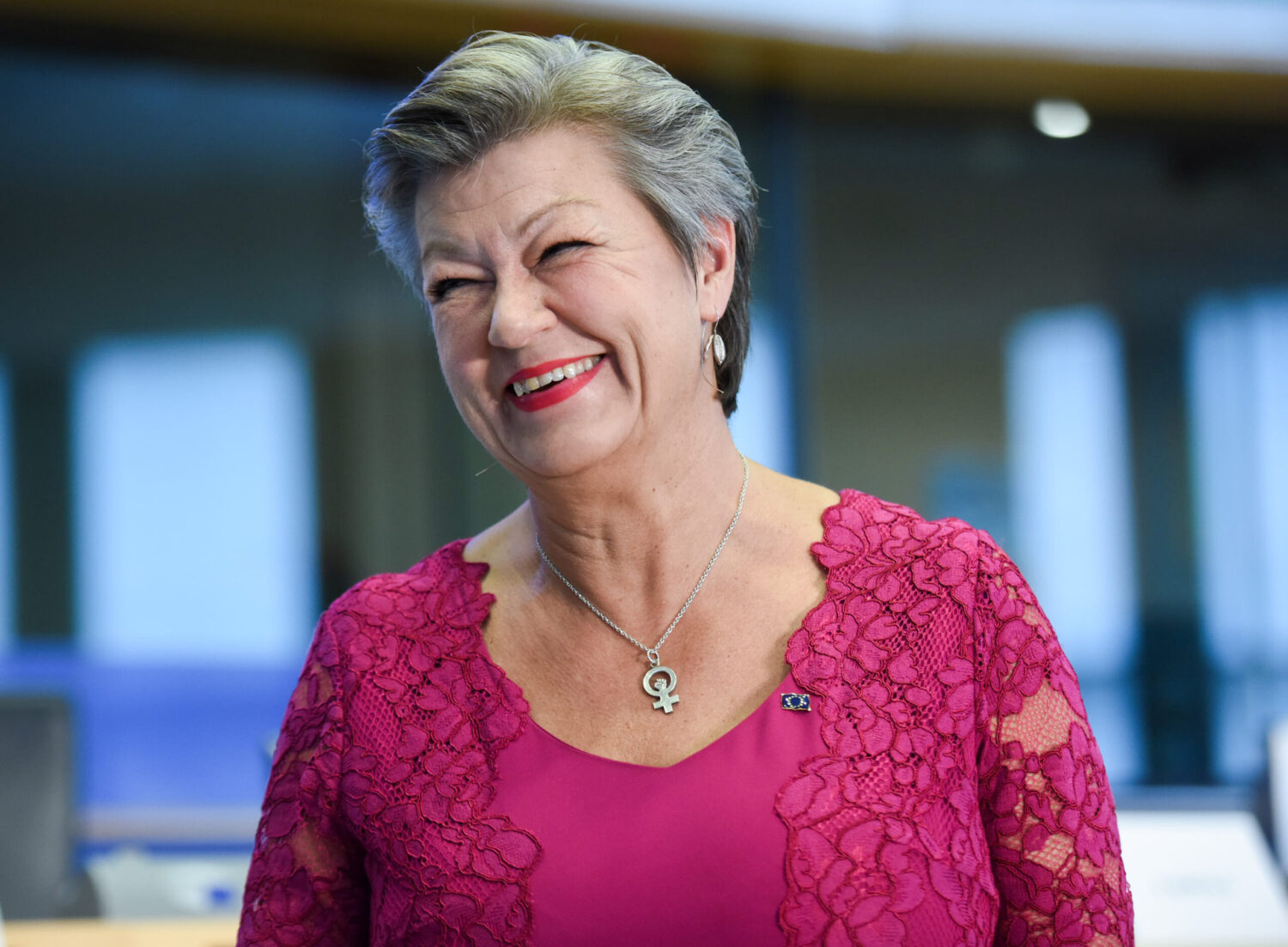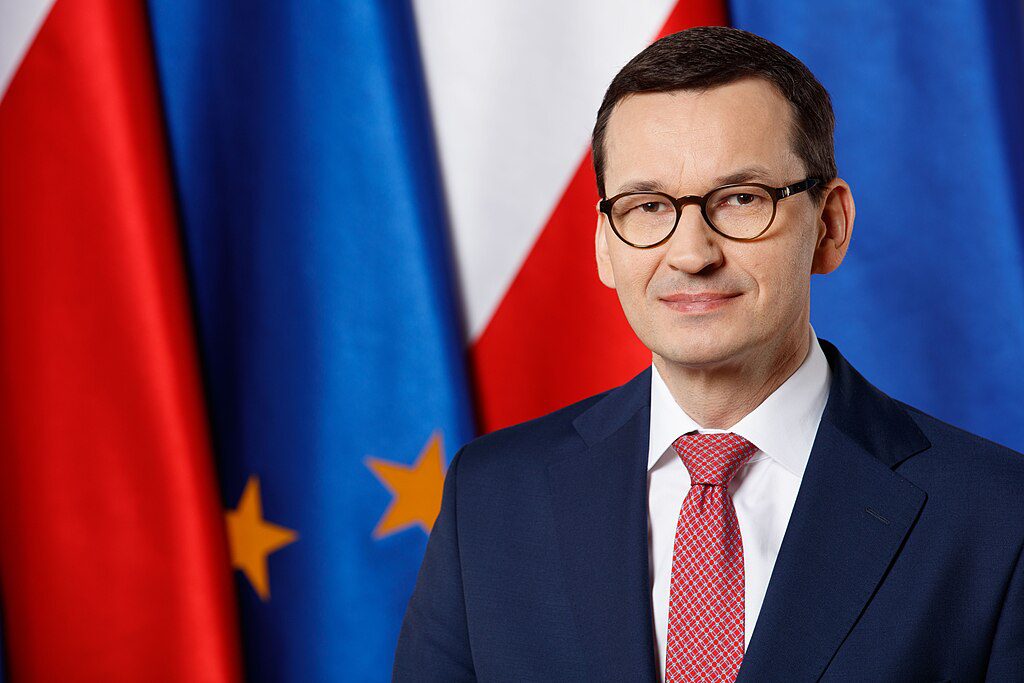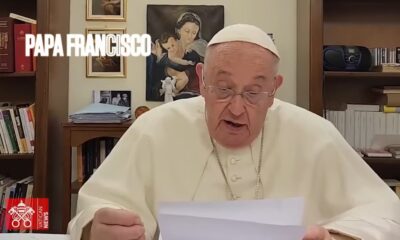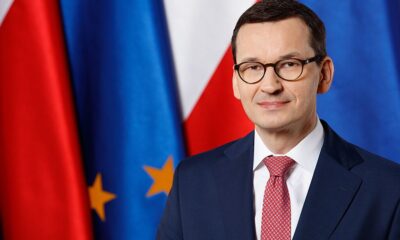Politics
Commissioner Johansson Announces Entry/Exit System Launch “eu-LISA” A New Era for European Borders

In a landmark announcement, Commissioner for Home Affairs, Ylva Johansson, addressed the staff of eu-LISA, the European Union Agency for the Operational Management of Large-Scale IT Systems, regarding the impending deployment of the state-of-the-art Entry/Exit System. This cutting-edge digital border management system, scheduled to go live on November 10th, marks a significant advancement in European border security and travel facilitation.
“Thank you eu-LISA,” Commissioner Johansson began her speech, acknowledging the Herculean efforts invested by the agency over the past decade. The Entry/Exit System aims to streamline travel processes while enhancing the security framework that protects Europe. By enabling digital border controls at all entry points, this system promises to transform how Europe manages its borders.
The Commissioner highlighted the journey toward this innovative system, beginning with legislative groundwork laid ten years ago, leading to the technical development initiated six years previously. “Turning legal texts into a digital reality, connecting an entire continent – that is a massive undertaking,” she noted.
The Entry/Exit System will interlink with existing national and European systems, establishing full interoperability. When operational, it will replace the outdated practice of passport stamping with digital checks, significantly enhancing the efficiency of border crossings for non-EU travelers. According to Johansson, more than 700 million travelers to Europe annually will be affected by these changes, making the transition crucial for maintaining robust yet seamless cross-border movement.
Commissioner Johansson addressed potential challenges and setbacks encountered during the developmental phase. She praised eu-LISA staff for their resilience and dedication, even as the project faced delays. “There were setbacks. There were delays. But you didn’t give up,” she commended, acknowledging the sacrifices made, including missed holidays, to meet the project’s deadlines.
The new system will also bolster security measures by deploying biometric identification processes, using photos and fingerprints to prevent the use of fraudulent travel documents. This measure is expected to enhance safety for 450 million Europeans by deterring potential threats, including illegal migration and the misuse of fake passports.
Further steps toward integrating large-scale IT systems within the EU are on the horizon, as eu-LISA will also work on the European Travel Information and Authorisation System (ETIAS) set to launch in 2025, and updates to Eurodac, critical to the EU’s migration policy.
Ending her address, Johansson emphasized the significance of the upcoming November 10th launch date. “You designed this border management system. You built it and you will run it,” she asserted, instilling confidence in the agency’s leadership and capabilities. The day promises to be a milestone in Europe’s ongoing mission to enhance security while promoting ease of travel, cementing eu-LISA’s role as a cornerstone of Europe’s digital frontier.
In conclusion, Commissioner Johansson’s speech underscored the collaborative spirit and unwavering commitment behind the Entry/Exit System’s development, promising a new era of secure and efficient border management for Europe.
Politics
Poland’s Former Prime Minister Mateusz Morawiecki Eyes Leadership of European Conservatives and Reformists

Warsaw, Poland – In a significant political maneuver, Poland’s former Prime Minister, Mateusz Morawiecki, is reportedly in contention for the leadership of the European Conservatives and Reformists (ECR) party, as published today by EURACTIV. This coveted role is currently held by Italy’s Prime Minister Giorgia Meloni. The news, initially reported by Euractiv based on insights from Polish media, underscores the shifting dynamics within the European right-wing political landscape.
Earlier reports from the Polish magazine Wprost, as highlighted by Euractiv, suggested that Morawiecki might reach an agreement with Meloni to succeed her as ECR president. However, the latest updates from the Fakt tabloid, as reported by Euractiv, indicate that no definitive decision has been made. A source close to Morawiecki revealed to Fakt, “Negotiations are ongoing. The chances are 50/50. Nothing is settled yet.” The source also noted Meloni’s reluctance to relinquish her position, while the Polish side is actively working to persuade her.
As Euractiv pointed out, neither the ECR nor Morawiecki’s Law and Justice (PiS) party has responded to requests for comments, leaving the political community in anticipation.
Should Morawiecki secure the ECR presidency, it would mark a strategic victory for his party, bolstering its influence on the European right. This move follows PiS’s electoral defeat to a broad centre-left coalition led by former European Council President Donald Tusk (Civic Platform, EPP) last year. For Morawiecki, the ECR leadership could serve as a political refuge if he is not chosen as PiS’s candidate for the Polish presidential election next year.
With Euractiv noting President Andrzej Duda’s completion of his second term in 2025 and his constitutional bar from seeking re-election, PiS is scouting for a new candidate. Morawiecki is reportedly among the contenders, alongside other prominent figures such as MEPs Patryk Jaki and Tobiasz Bocheński, former defense minister Mariusz Błaszczak, and former education minister Przemysław Czarnek. Each potential candidate brings unique political strengths and challenges, with Bocheński emerging as a new favorite of PiS leader Jarosław Kaczyński, while Jaki, Błaszczak, and Czarnek remain polarizing yet popular among PiS supporters.
The announcement of PiS’s presidential candidate is expected at the party congress in September or early October. Meanwhile, the ruling coalition has yet to reveal its candidate, and Prime Minister Donald Tusk has publicly ruled out a presidential bid. Tusk, as highlighted by Euractiv, lost the 2005 presidential election to Lech Kaczyński, the late twin brother of PiS leader Jarosław Kaczyński, and remains a pivotal figure in Poland’s political arena.
As the political chessboard in Europe continues to evolve, Morawiecki’s potential ascension to the ECR presidency could redefine alliances and power dynamics, not only within Poland but across the broader European conservative movement. As reported by Euractiv, the coming months will be crucial in determining the future trajectory of both Morawiecki’s political career and the ECR’s leadership.
Africa
The Impact of Political Leadership on Economic Development in Nigeria

By Emmanuel Ande Ivorgba, PhD. Executive Director, Centre for Faith and Community Development (CFCD)
INTRODUCTION
The traditional concept of leadership is based on the notion that leaders are selected to command control and make final decisions for the collective group. However, through this viewpoint, leadership is viewed not only as an exercise of authority but also on the legal grounds. As societies become more complex, technical demands of the state grow, and decision authority becomes specialized. We are more naturally concerned with what leaders do with the job, and what they are and their behavior. In a country of high-rank public-private sector bureaucracy, leaders at different management hierarchical levels play a major role in shaping the direction of political life. They contribute to our understanding about the role of political leadership in policy formulation.
Nigeria, with its vast amount of natural resources, is currently undergoing rapid economic decline. There is a high incidence of poverty, escalating inflation, balance of payment problems, as well as heavy debt-servicing problems. The root cause of this economic problem stems from the pursuit of an inappropriate economic policy. The dominance of poor leadership in policy formulation in Nigeria can clearly be identified as the main source of the problems. Political leadership is pivotal and significant in shaping the economic landscape of any nation (Klarin, 2020). The quality of any nation’s political leadership can significantly determine or influence such nation’s overall economic development trajectory. Nigeria is blessed with a vibrant human population, abundance of natural resources. These resources, coupled with the great entrepreneurial spirit and resilience of the citizens, have positioned Nigeria as a potential continental economic powerhouse. Unfortunately, and disappointedly so, weak institutional frameworks, coupled with corruption, policy inconsistencies and other numerous governance challenges, have constituted stumbling blocks to the country’s inability to effectively and efficiently harness its economic potential (Ogunleye & Adeleye, 2018).
Economic development is a measure of the increase of per capita income, which is itself, a function of the growth rate of national income (Mankiw & Taylor, 2014). National income growth depends largely on, political leadership stability as well as the appropriate economic policies implemented by the political leadership. Also, insights into the influence of political leadership on the socio-economic development enable one to understand the roots of the poverty trap in which many developing nations are stuck. Understanding why countries have the type of leaders they do have and what determines a politician to govern well or govern poorly help us appreciate the positions of governance. This paper seeks to explore the intricate and dynamic relationship between political leadership and economic development in Nigeria. The paper will briefly examine the historical context, challenges and opportunities in Nigeria’s economic landscape, key policy decisions, and governance structures to unravel the impact of political leadership on key economic indicators such as job creation, infrastructure development, poverty alleviation, GDP growth, and foreign direct investment. The paper will provide insights into how effective leadership can catalyze positive economic transformation and propel inclusive growth and development in Nigeria. BACKGROUND With a human population of over 230 million, and rich in natural resources, Nigeria, popularly referred to as the “Giant of Africa” (UK Essays, 2018), and continental powerhouse (Akindele, et al. 2012), holds vast potential for economic growth and development. Despite this abundance of human and natural resources, the country has faced numerous complex challenges and struggles on its path to economic prosperity. Nigeria has experienced significant political, social, and economic changes since its independence from British colonial rule in 1960. Political leadership continues to play a central role in Nigeria’s fate. In general, the effects of political stability on economic development underscore the fact that political opportunities drive the economic policies in countries, especially those that are external as opposed to internal factors. The effectiveness of political leadership in providing the best opportunities for economic policies is also important because the nature of the stability is driven by how the political market works in various countries. Overall, many different types of political markets lead to different types of policy commitments. The impact of political leadership attributes is manifested through varying degrees of political stability, democratization, income inequality, and governance quality. The historical context of Nigeria’s economic development efforts has been shaped by a complex interplay of factors. These include the legacies of the colonial era, post-independence governance structures, the discovery of oil and Nigeria’s dependence on oil, political instability and social inequalities, among others. The country has experienced long periods of military rule, and military coups, disrupting democratic processes, with profound repercussions on economic management and policy consistency. While the discovery of oil in commercial quantities in the 1950s provided a unique opportunity for the transformation of Nigeria’s economy and acceleration of the development process, the country’s over-reliance and dependence on oil revenues, and neglect of particularly, manufacturing and agriculture, exposed the country’s economy to external shocks and volatility. This has been further compounded by the mismanagement of oil revenues and the absence of, or lack of diversification. Different administrations and political leaders in Nigeria, have implemented several economic policies that have generated both positive and negative impacts on the nation’s economy. Additionally, the socio-political dynamics coupled with regional disparities, ethno-religious tensions, poverty, youth unemployment, among others, underscore the multidimensional complexities that Nigeria’s political leaders must address in order to foster inclusive and sustainable national economic growth. POLITICAL LEADERSHIP IN NIGERIA From the beginning, the political leadership has been infused with a degree of military dominance and military interests. Their unwillingness to relinquish control of governance and the economy exposed Nigeria’s leadership to ineffective policies that advocate autocracy, preserve tradition, uphold the old methods instead of developing creative and entrepreneurial elements to thrive when addressing economic development and socio[1]economic change. Political leadership in Nigeria is primarily dedicated to self-interests and strategies. This inadequacy largely refuses them from seeing the need for Nigeria to devise and implement the strategic economic development policies rather than the traditional growth-based doctrines provided and promoted by international economic analysts and international economic ideologues. The autocratic policy models are directed at reinforcing figureheads and also provide ‘cocktail’ solutions primarily to maintain political rivalry. As a result, policy leadership evolves less in the way of the country’s economic and social development. An important characteristic of Nigeria’s political leadership is the role of ethnic and religious affiliations in shaping political alliances and power structures. Ethno-religious dynamics and blocs have played a significant role in determining political outcomes and leadership appointments (Akande, 2016). This has often resulted in a fragmented political landscape, with leaders often prioritizing the interests of their own ethnic or religious groups over those of the nation as a whole. Also, the legacy of military rule has had a lasting impact on Nigeria’s political leadership. Many former military leaders have transitioned into civilian politics, bringing with them a hierarchical and authoritarian style of leadership that has at times undermined democratic principles (Ojo, 2017). This has contributed to a culture of strongman politics, where leaders often centralize power and suppress dissent to maintain control. There have been efforts, in recent years, to reform the country’s political leadership and improve governance standards, through initiatives such as anti-corruption campaigns and electoral reforms, to address some of the challenges facing the country’s leadership (Adesina, 2020). However, progress in this direction has been very slow, and entrenched power structures continue to pose obstacles to meaningful change. HISTORICAL OVERVIEW In analyzing how political leaders influence economic performance in Nigeria, one should be cognizant of the fact that it is the interaction of the political elite with the economic cycle that provides insight into how political institutions mediate the influence of the political elite on the economy. Nigerian society has experienced considerable political upheaval. Income inequality has increased since the 1960s, and democratic political structures have not been effectively adapted to reflect the changes in social structures influenced by modernization. The erratic progress of democracy in Nigeria and its inability to cope with the pressures of rapid modernization have led to an erosion of belief in the efficacy of the social system. Decades of authoritarian or military rule in Nigeria have had a negative impact on the quality of governance and the standard of living of most Nigerians. Nigeria’s economic development has been greatly influenced by a variety of historical, social, and political factors, including pre-colonial trade, colonial exploitation, post-independence policies, and the oil boom. In the pre-colonial period, several thriving economies with very extensive trade networks existed. For example, the Yoruba city- states existed in the southwest, the Benin Kingdom in the southeast and the Hausa kingdoms in the north, engaged in agriculture and craft production, and traded, not only among themselves, but with coastal and trans-Saharan traders (Falola & Heaton, 2008). Then came the Colonial Era, which lasted from 1861-1960, and significantly altered Nigeria’s economic landscape. During this period, the British concentrated on extraction and exportation of raw materials to feed the European Industrial Revolution. The economy was designed to produce cash crops like groundnuts, palm oil, cocoa and others to serve British interests (Ake, 1981). The Post-Independence Industrialization period, from 1960-1970 sought to transform the colonial economic structure and accelerate Nigeria’s industrial development (Ekundare, 1973). Economic development plans were then designed by the government to promote and support the diversification of the country’s economy from agriculture towards industrialization and infrastructural development. This was followed, in the 1970s, by the period of Nigeria’s Oil Boom, where the problem of the country was not money but how to spend it. Oil contributed about 90% of foreign exchange earnings and over 80% of government revenues. The result was increased urbanization and investments in the development of infrastructure, but agriculture and other sectors were practically neglected (Osoba, 1996). With support from the World Bank and the International Monetary Fund (IMF), Nigeria adopted the Structural Adjustment Program in 1986. This was in response to the challenges of rising debt and falling oil prices. An important goal of the SAP was to liberalize Nigeria’s economy, support private enterprise and minimize state involvement. However, the immediate social impact of the SAP was increased poverty and inequality (Iyoha & Oriakhi, 2002). In 2004, the Nigeria launched the National Economic Empowerment and Development Strategy (NEEDS), focusing on poverty reduction, economic diversification and infrastructure development. The NEEDS focused on the promotion of good governance practices, private sector participation, and social development programs (Soludo, 2017). the Economic Recovery and Growth Plan (ERGP) was launched in 2007 by the government to support and boost agriculture, manufacturing and services (Kalejaiye & Aliyu, 2013). Another policy, the Vision 2020 Agendafollowed in 2009. The goal of the Vision 2020 was to position Nigeria as one of the top 20 economies in the world by 2020. It focused on key sectors such as agriculture, manufacturing, and services, and called for investment in human capital development and infrastructure (Ibrahim, 2020). Since 1990 to date, the country has witnessed a mixture of economic growth and setbacks. While there has been some form of stability in terms of democratic governance and political stability, corruption-induced challenges, the lack of economic diversification away from oil and lack of basic infrastructure still remain.
The influence of political leadership on the economy has been evident in various policies, decisions, and actions taken by those in power. One key example of this can be seen in their management of the country’s vast natural resources, particularly oil. Nigeria is a major oil producer, and the country’s political leaders have often used revenue from the oil sector to fund government programs and projects. Unfortunately, mismanagement, corruption, and lack of diversification have led to a situation where the economy remains heavily reliant on oil, making it vulnerable to fluctuations in global oil prices (Oyekola, 2015). In order to attract investments and spur economic development, sound economic policies, infrastructural development and regulatory frameworks are very essential. However, political instability, policy inconsistency, and corruption have often deterred investors, leading to suboptimal economic performance (Onyishi, 2018). Also, decisions in respect to government spending, currency stability, taxations and interest rates, are important factors that influence economic performance. Purposeful and effective political leadership in these areas can lead to sustainable economic growth, while poor decisions, as Nigeria’s experience has shown, exacerbate economic challenges(Akinbobola, 2019).
Nigeria has just as much potential as almost any other developed country and can show the same improvement if their government becomes truly transparent and accountable, focusing on creating a conducive enabling environment for organizing Nigerian civil society to generate growth. The importance of political instability and poor governance to the decline of Nigeria’s business climate is not limited to discouraging large foreign investors, but it also affects small and medium-sized businesses. Banks are also affected in several ways by the political instability and poor governance of the country. Political instability contributes to a high-risk credit market and reduced access to credit for the private sector. The financial sector is one area in which scientific and internal market work can be done to establish how poor governance affects Nigeria’s economy.
POLITICAL ECONOMY THEORIES
The literature on political economy (Mills, 2005) as well as political business cycle theory (Nordhaus & William, D, 1975) is rich with reasons why politicians in particular would want to shape economies. They have incentives to gain from various forms of rent seeking. Classical and neoliberal economists have come up with mechanisms through which leaders can manipulate areas of the economy to stay in power. Politicians also agree to a social contract with citizens to provide public goods in return for a mandate to govern. There are incentives for politicians to supply public goods to maintain power. Politicians may choose to use economic policy to expand a country’s productive capacity or improve national welfare as part of their stewardship. This may involve providing an enabling environment where the private sector flourishes and produces many desirable goods and services. Politicians can also manipulate the economy by trading off some economic policy in exchange for political survival. Political leaders remain the most important economic agents whose intentions to grow the economy can impact on aggregate productivity and improve economic outcomes.
Political economy theories offer insights into the complex interplay of institutions, interests and power, as well as different perspectives on the relationship between economics and politics. Some key political economy theories include:
a. The Classical Political Economy Theory, which began around the 18th and 19th centuries, was very prominent and promoted by great thinkers and renowned economists like Adam Smith and David Ricardo, among others. The classical political economy theory emphasizes minimal government intervention, free markets and self-interests in driving economic outcomes. Proponents of the classical political economy theory believe that overall economic prosperity through the invisible hand mechanism (Smith, 1776), would result from self-interest.
b. The Marxist Political Economy Theory: Developed by Karl Marx and Friedrich Engels, the Marxist political economy theory deals with the relationship between social classes, labour and capital. The foundation of this theory is that capitalism is inherently exploitative, hence proponents of Marxist political economy theory advocate for the overthrow of the capitalist system (Marx, 1867), and the establishment of a classless society rooted in the common ownership of th means of production.
c. The Institutional Political Economy Theory: The Institutional Political Economy Theory is described as a fusion of economic analysis with political science and sociological insights, in order to properly examine how economic behaviour and outcomes are shaped by institutions. The theory highlights the significance and influence of formal and informal rules and norms, including power structures in economic decision-making (North, 1990). Institutions have the capacity to either promote or hinder economic development and social welfare.
ECONOMIC DEVELOPMENT IN NIGERIA
Economic growth is a significant contributor and necessary component of economic development. Economic development is the creation of enabling conditions that promote and stimulate rapid and substantial increase in the basic material well-being of the majority. This is achievable by the implementation of political leadership policies to promote economic growth through land reforms, capital intensive industrialization, educational stimulus and effective public health system. Economic development must be measured through such areas as the reduction in the opportunities for malnutrition, the considerable reduction in high infant mortality rates, the availability of potable water, the availability of access to quality educational material, the growth of public health, greater opportunities for employment, the gradual socio-economic level generated by the majority of the people whereby an average level of society is established, the reduction in the level of high inflation and unemployment, indices of per-capita income, and through the efficient allocation of resources in regulating the type of social relationships. The term “economic development” can be viewed from the perspective of a false dichotomy in the development process. The dichotomy resulted due to the identifying of economic development with the advancement of the “center” (the more developed and industrialized countries, usually capitalist, on the one hand) and the possibilities of the “periphery” (viz the less developed, under-developed, undeveloped or developing countries, often countries of Asia, Africa and Latin America, on the other. What the political economist referred to frequently as “economic growth” – a sustained increase in the output of goods and services of a country, usually measured at one sector of the economy most times through the increase of the Gross National product (as one of the forms of indicators of economic development) is often confused with economic development itself. Historically, Nigeria’s economic development has evolved significantly, shaped by its rich endowment of natural resources, governmental policies, and its interactions within the global economy. Nigeria’s oil and gas sector accounts for about 90% of export earnings and more than 50% of government revenue (Central Bank of Nigeria, 2022). This over-dependence on oil and gas has made the country’s economy highly susceptible to global oil price fluctuations. Efforts have been intensified in recent times, to diversify the economy through the development of the agricultural sector, which accounts for about 70% of the labour force and about 24% of the country’s GDP (National Bureau of Statistics, 2022). The Manufacturing sector, though still nascent, holds great promise, in terms of its contributions to the nation’s GDP. This is the clear focus of the Nigeria Industrial Revolution Plan (NIRP), designed to support the manufacturing sector to become globally competitive by increasing the sector’s manufacturing base (Federal Ministry of Industry, Trade and Investment, 2022). The services sector has recorded the fastest growth in Nigeria, with telecommunications driving the expansion of mobile telephony and internet penetration. The financial services industry has been revolutionized, enhancing financial inclusion (PwC, 2023). Despite such progress, especially in the services sector, Nigeria’s economic development is still hampered by challenges of corruption, insecurity, political instability, and unacceptable unemployment rate, especially among the country’s youth population. Poverty is also widespread, as a significant portion of the country’s human population continues to live below the poverty line. Nigeria’s political leaders are today, also strained by contemporary socio-economic and geopolitical problems.
INTERPLAY BETWEEN POLITICAL LEADERSHIP AND ECONOMIC DEVELOPMENT
The interplay between political leadership and economic development in Nigeria is profound and deeply influential, presenting a mix of opportunities and challenges over the years. Depending on the nature of leadership, sometimes military and sometimes civilian, centralized versus decentralized, this interplay between political leadership and economic development in Nigeria has been marked by significant shifts. Persistent issues such as corruption and political instability remain significant barriers. The path to sustainable economic development in Nigeria depends largely on the emergence of transparent, accountable, and effective political leadership. Economic policies and outcomes are directly impacted by political leadership. For example, Nigeria witnessed significant regional disparities due to political and ethnic tensions, during Nigeria First Republic (1960-1966), which greatly influenced developmental policies and economic development decisions (Falola & Heaton, 2008). From the late 1960s to late 1990s, the Nigeria witnessed long periods of military regimes, with centralized control over decision-making and economic resources. Nigeria returned to civil rule in 1999, signaling a significant turning point for the nation’s political and economic landscape. The Federal Government then, led by President Olusegun Obasanjo, from 1999- 2007, initiated significant economic policies, including banking sector reforms, privatization and the war against corruption to promote Nigeria’s growth and economic stability (Utomi, 2013). Despite these encouraging efforts, corruption, insurgency, political instability, and inadequate infrastructure have continued to impede substantial economic progress. Resources that could be applied for economic development have been drained by political corruption, due to large-scale mismanagement and embezzlement of funds by political leaders (Ekanade, 2014), significantly hampering Nigeria’s economic development. The establishment of institutions such as the ICPC and the EFCC demonstrates leadership commitment to combating corruption. However, the effectiveness of these institutions has depended largely, on the leadership’s commitment and political climate (Agbiboa, 2012). Political leadership seeks to recast the economy, the rules of the institution of property and production, and the distributional benefits from economic growth and stability; it seeks to redistribute property and production, enunciates and enforces written and principled rules of commercial behavior so that technology, skills, knowledge, and other means of production are deployed efficiently at the levels of the corporate sector, while acceptable distributional privileges are punctuated; and it seeks to protect and defend property rights, and to regulate the conduct and behavior of economic agents within the terms of written and enforced rules. The governance structure can either facilitate or obstruct the realization of the aim and objectives of political leadership.
CONCLUSION
Political leadership is fundamental in the process of governance, towards the achievement of desirable objectives, including economic development, social integration, public well-being, and such other related goals. However, political leaders could impact the economy in diverse ways, such as their political orientation and ideology. Furthermore, political leadership is expected to engineer the economy towards greater performance through various operative mechanisms like policy formulation, decision-making, implementation, and the evaluation of policies. It is these functions that allow political leaders to use public resources to create value for the improvement of the living standards of a country, while at the same time working to broaden social welfare, for instance, by increasing employment. Although political leadership’s corresponding influence on economic development can have significant consequences, either through its impact on policy change driven by its transfer of power from one set of political actors to another, or by altering expectations and beliefs, political regimes can shape patterns of economic development and distributions. Such leaders can act as a model, man of action, great communicator, or transformational leader, while others have been seen as people of vision pursuit focusing on creativity and risk persuasiveness inspiring trust to make things happen, society builder, nation-builder(s), nation transformer, and many more. Good political leadership creates an environment that promotes economic development. Intriguingly, corruption at all levels of governance, poor accountability and transparency have been identified as the bane of the underdevelopment of many African nations including Nigeria. To find solutions to these problems, this work has investigated the influence of political leadership on economic development in Nigeria. The paper is anchored on the legitimacy theory which emphasizes the importance of public confidence and trust in government-to-government effectiveness. The study adopted the quasi-experimental research design with the secondary source of data as the only source of data collection. Data analyzed were obtained from secondary sources using content analysis. The research found out that political leadership influences economic development in Nigeria ranging from ineffective utilization of resources, embezzlement of public funds, bad governance, poor service, and inadequate level of socialization, and encouragement of corrupt practices among public officials. This paper suggests that more attention should be paid to the challenges at the institutional structure and the political system in Nigeria. These challenges call for significant measures aimed at promoting good political leadership in Nigeria. For Nigeria to attain her worthy goals as a competitive and prospering nation, Nigerians must commit to re-establishing value for the common good, a good society, community, dialogue, tolerance, fraternity, and self-identity, fostering a mutual sense of belonging in full participation and well-being. Furthermore, initiating agile services reflecting due transparency and encouraging responsibility among all its leaders at all levels, in good faith and uprightness, and manifesting self-pride. To this end, the paper advocates for the urgent need for enhancing moral leadership and promoting genuine politics in terms of the inviolability of life, perennial morals, and the preservation of the human environment, and democracy for social and civil rights.
IMPLICATIONS AND RECOMMENDATIONS
When political leaders are unjust, oppressive and manipulative, it becomes difficult to share the goals of the elite, and consequently stifle efforts toward growth and development. However, and usefully, vision, political will, attributes of democratic inclusiveness and transformational qualities make great leaders capable of leading development and country mobilization into prosperity, democracy and development. A sense of national interest as the cardinal point of leadership informs the communal spirit of visionary political leadership in building and remolding the structure of a nation state. In conclusion, all historical trajectories to high growth in emerging economies were marked by focused attention to structural change by political leadership. In this sense, an inclusive approach and response from the political leadership in Nigeria places some optimism in the quest for long-term growth and economic progress. Leadership at the level of nation-states had a greater impact on growth and development than at any higher level. A developing country’s own leadership had the major responsibility to initiate, guide and pace its growth process. History and successful models of change provide a message of hope, that with the right policies, attributes and dispositions of its leaders, good countries can become better. However, at other times political leaders thwart the development of their nations through corrupt practices and greed that undermines development objectives.
REFERENCES
1. Akande, J. (2016). Ethnicity, Religion and Corruption in Nigeria. African Journal of Politics & Society, 3(2), 87-101.
2. Ake, C. (1981). _A Political Economy of Africa_. Longman.
3. Akinbobola, M. (2019). Fiscal Policy and Economic Performance in Nigeria: An Empirical Analysis, Nigerian Journal of Economics, 22(3), 56-71.
4. Akindele, R.A., & Ate, B.E. (2012). Nigeria and the ECOWAS since 1985: Towards an Explanation of a Paid Piper and his Unchanged Tune. Nigerian Forum.
5. Ajakaiye, O., & Adedeji, O. (2018). Colonialism and Economic Development in Nigeria: A Review of Its Impact. Journal of African Development Studies, 11(2), 45-60.
6. Central Bank of Nigeria. (2022). Annual Report. Retrieved from [cbn.gov.ng](https://www.cbn.gov.ng)
7. Ekanade, O. (2014). *The Dynamics of Forced Neoliberalism in Nigeria since the 1980s*. Ibadan: Indiana University Press.
8. Ekundare, R. O. (1973). _An Economic History of Nigeria 1860-1960_. Africana Publishing Corporation.
9. Falola, T., & Heaton, M. M. (2008). _A History of Nigeria_. Cambridge University Press.
10. Federal Ministry of Industry, Trade, and Investment. (2022). Nigeria Industrial Revolution Plan (NIRP). Retrieved from [trade.gov.ng](https://www.trade.gov.ng)
11. Ibrahim, A. B. (2020). Economic Recovery and Growth Plan (ERGP): A Pathway to Sustainable Development in Nigeria. Nigerian Journal of Economic Development, 33(2), 55-70.
12. Iyoha, M. A., & Oriakhi, D. E. (2002). Explaining African Economic Growth Performance: The Case of Nigeria (Draft Final Report). African Economic Research Consortium.
13. Kalejaiye, P. O., & Alliyu, N. (2013). The Rise of China and Africa’s Economic Transformation: An Analysis of Nigerian Trade Relations with China. _Journal of Economics and Sustainable Development_, 4(5), 62-72.
14. Klarin, J. (2020). The Role of Political Leadership in Economic Development. Economic Journal, 25(3), 35-50
15. Lewis, P. M. (2007). *Growing Apart: Oil, Politics, and Economic Change in Indonesia and Nigeria*. University of Michigan Press.
16. Mankiw, N.G., & Taylor, M.P. (2014). Economics. Cengage Learning.
17. Marx. K. (1867). Capital: Critique of Political Economy. Moscow: Progress Publishers.
18. Mills, C. W. (2005). “Globalizing Historical Materialism: A Conversation with Charles Mills.” Socialism and Democracy, 19(1), 177-202.
19. National Bureau of Statistics. (2022). Nigerian Gross Domestic Product Report. Retrieved from [nigerianstat.gov.ng] (https://www.nigerianstat.gov.ng)
20. Nnanna, O. J. (2019). Economic Reform and Governance in Nigeria: Progress, Challenges, and Prospects. Journal of African Economic Development, 14(4), 120-135.
21. Nordhaus, William D. “The political business cycle.” The Review of Economic Studies 42.1 (1975): 169-190.
22. North, D.C. (1990). Institutions, Institutional Change, and Economic Performance. Cambridge University Press.
23. Ogunleye, O., & Adeleye, I. (2018). Challenges of Economic Development in Nigeria: The Role of
Policy Inconsistencies and Institutional Frameworks. Journal of African Economics, 42(2), 65-80.
24. Ojo, O. (2017). Military Rule, Democracy Transition, and Political Leadership in Nigeria. Journal of African Political Studies, 4(3), 112-128.
25. Oyekola, K. (2015). Oil Wealth and Economic Development in Nigeria: Challenges and Opportunities. African Development Review, 17(2), 78-94.
26. Onyishi, E. (2018). Political Instability and Foreign Direct Investment in Nigeria. Journal of Political Economy, 35(1), 124-139.
27. Osoba, S. O. (1996). Corruption in Nigeria: Historical Perspectives. _Review of African Political Economy_, 23(69), 371-386.
28. PwC. (2023). The rise of fintech in Nigeria: Challenges and opportunities. Retrieved from [pwc.com] (https://www.pwc.com).
29. Ross, M. L. (2015). The Politics of the Resource Curse: A Review. Developments in the Economics of Natural Resources, 25(1), 35-50.
30. Smith, A. (1776). An Inquiry into the Nature and Causes of the Wealth of Nations. London: W. Strahan and T. Cadell.
31. Soludo, C. (2017). Oil, Economic Diversification, and Sustainable Development in Nigeria. Nigerian Journal of Economic Policy, 30(3), 72-88.
32. UK Essays. (2018). Why is Nigeria Called the Giant of Africa? Retrieved from
[https://www.ukessays.com/](https://www.ukessays.com/essays/history/why-is-nigeria-called-the[1]giant-of-africa.php).
33. Utomi, P. (2013). *Nigeria’s Path to Progress: Towards Economic Recovery and Accelerated Development*. Lagos: Africana Leadership Academy
First publication: International Journal of Research and Innovation in Social Science (ISSN 2454-6186), vol. VIII, issue VII, July 2024, p. 1274-1282, https://dx.doi.org/10.47772/IJRISS.2024.807106 Received: 17 June 2024; Revised: 30 June 2024; Accepted: 04 July 2024; Published: 07 August 2024.
Illustrative Photo by Christina Morillo: https://www.pexels.com/photo/black-and-gray-laptop-computer-turned-on-doing-computer-codes-1181271/
Politics
Parliament adopts reform of the EU electricity market | News
The measures, composed of a regulation and a directive already agreed upon with the Council, were adopted with 433 in favour, 140 against and 15 abstentions, and 473 votes to 80, with 27 abstentions, respectively.
The law will protect consumers against volatile prices. MEPs ensured that they will have the right to access fixed-price contracts or dynamic price contracts, and receive important information on the options they sign up to. Suppliers will not be allowed to unilaterally change the terms of a contract.
MEPs also secured that EU countries can prohibit suppliers from cutting the electricity supply of vulnerable customers, including during disputes between suppliers and customers.
Contracts for Difference
The legislation provides for so-called “Contracts for Difference” (CfDs), or equivalent schemes with the same effects, to encourage energy investment. In a CfD, a public authority compensates the energy producer if market prices fall too steeply, but it collects payments from them if prices are too high. The use of CfDs will be allowed in all investments in new electricity production, whether from renewable or nuclear energy.
Electricity price crisis
The text sets out a mechanism to declare an electricity price crisis. In a situation of very high prices and under certain conditions, the EU may declare a regional or EU-wide electricity price crisis, allowing member states to take temporary measures to set electricity prices for SMEs and energy intensive industrial consumers.
Quote
“This reform puts citizens at the forefront of electricity market design. The text includes measures to protect citizens, especially the most vulnerable and to accelerate the deployment of renewable energy sources. The Parliament has taken a step forward in democratising energy, creating a market design that responds to the failures exposed by the energy crisis. All consumers, including micro, small, and medium-size enterprises will have access to long-term, affordable and stable prices.” lead MEP Nicolás González Casares (S&D, ES) said.
Next steps
After Parliament’s approval, Council also needs to formally adopt the legislation to become law.
Background
Energy prices have been rising since mid-2021, initially in the context of the post-COVID-19 economic recovery. However, energy prices rose steeply due to gas supply problems following Russia’s war against Ukraine in February 2022. High gas prices had an immediate effect on electricity prices, as they are linked together under the merit order system, where the most expensive (usually fossil fuel-based) energy source sets the overall electricity price.
Source link
-
Travel15 hours ago
New Brussels to Venice night train: The 9 cities en route, what it will cost and how to book
-

 Sports2 hours ago
Sports2 hours agoTurin, Urbano Cairo retorts to fans on Bellanova
-

 Sports2 hours ago
Sports2 hours agoDucati, Pecco Bagnaia-Marc Marquez duel: “Valentino Rossi ready to step in”
-

 Health & Society2 hours ago
Health & Society2 hours agoPope Francis calls on religions to unite to reduce demand for drugs
-

 Health & Society2 hours ago
Health & Society2 hours agoSexual abuse, electric shocks, chemical restraints in Mental Health Care, report finds
-

 Africa2 hours ago
Africa2 hours agoThe Impact of Political Leadership on Economic Development in Nigeria
-

 Politics2 hours ago
Politics2 hours agoPoland’s Former Prime Minister Mateusz Morawiecki Eyes Leadership of European Conservatives and Reformists
-
EU & the World2 hours ago
Mike Lynch Yacht Update: Fifth Body Recovered Off Coast of Sicily








